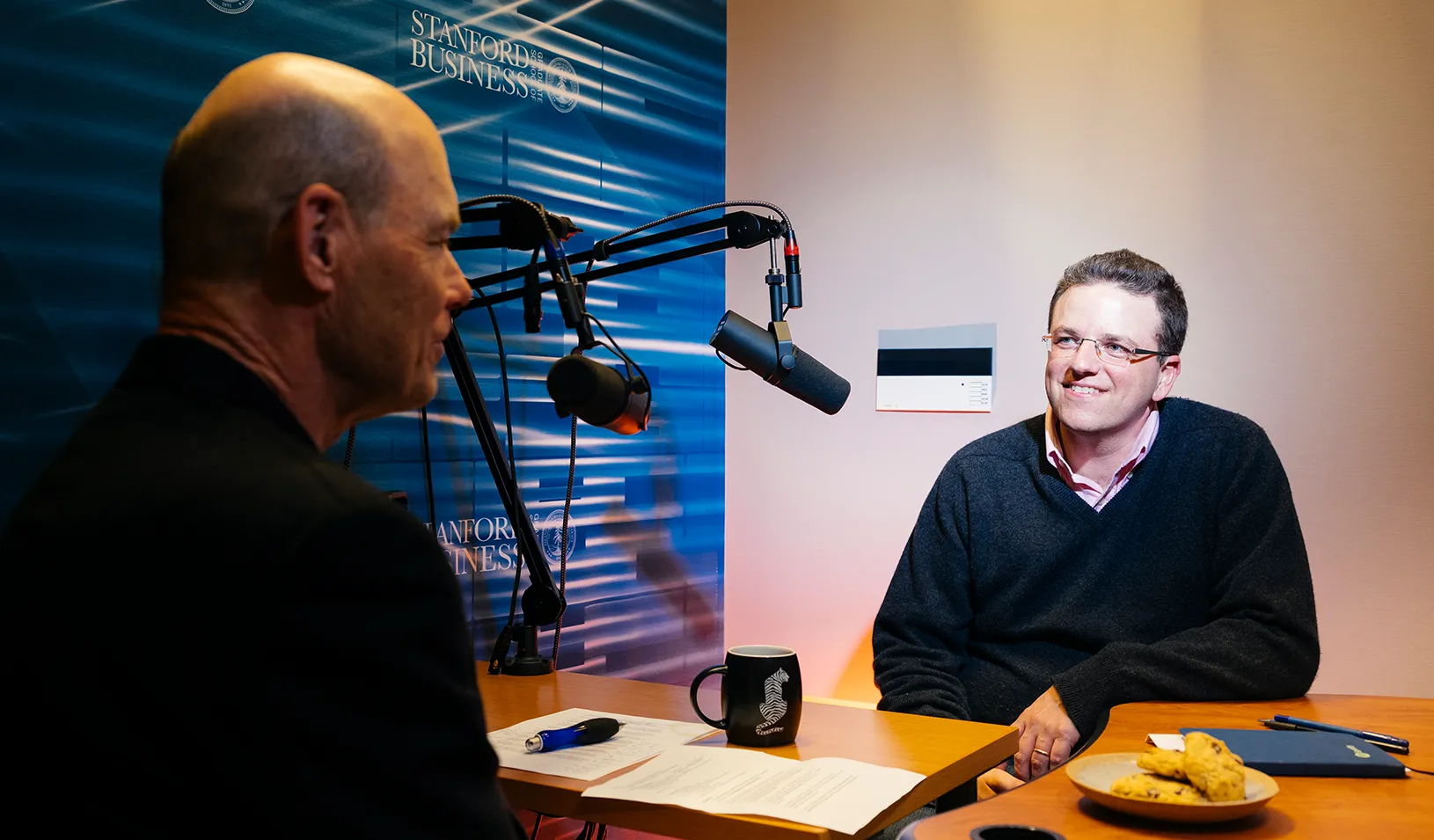Hard Lesson: Don’t Apologize for Saying Sorry
Dominique Mielle, MBA ’98, recalls how a hasty email led to an “Oscar-worthy” act of contrition.
September 28, 2022

The pain of an apology may pay off in the long term. | Lesly Hall
In 2012 I had a meeting with a Japanese company, an early investor in our firm’s collateralized loan obligation bonds that had required, about a year earlier, its approval for a change in terms. The change was technical in nature and inconsequential, yet the investors refused to give their approval unless we paid them a fee. I declined to pay but insisted they approve the change, explaining that they would not be worse off, would do me a solid, and vaguely threatening that they could need a favor back, someday, somewhere.
Looking over my shoulder as I composed this response, my partner Jeff wisely advised me to back down. I pressed “Send” anyway. The investors’ next email to me read something like, “You asked some rule changes and before we to you no said. Therefore we please you do not ever ask again.” Now, in Japan, when no one bothers to check the grammar of a message in English, you must appreciate that this is serious business.
Editor’s Note
As part of an ongoing series, Stanford Business magazine asks Stanford GSB alumni to reflect on one of their biggest business failures and what they learned from it.
Dominique Mielle, MBA ’98, is a former partner and senior portfolio manager at Canyon Capital, a multi-strategy hedge fund. Her 2021 book, Damsel in Distressed, from which this article is adapted, is the first hedge fund memoir written by a woman.
As we entered the lobby and got into the elevator for the in-person meeting in Tokyo, our salesperson from Goldman Sachs, a young and prim fellow who was acting as the intermediary, politely pulled me aside. He coldly informed me that the investors were vexed. So displeased, in fact, that they had transferred our meeting to a junior team to lead in a closet, without proper seating — which was rough on their own analysts, but who was I to judge? My marching orders were to apologize immediately in a manner of my choosing.
It isn’t simple to beat your ego into submission in the span of two floors, in order to ask strangers for forgiveness of wrongdoing you believe you did not commit, sandwiched between two colleagues on a springless sofa in a space that looked as inviting as the waiting room of a free health clinic. But thus it was that I launched into a very personal rendition of novelist Yukio Mishima’s hara-kiri mixed with Tom Hanks’ emotionally charged apology to his volleyball in Cast Away (“I’m sorry, Wilson! I’m sorry!”).
I am not one to brag, but Jeff swore that the performance was Oscar-worthy. However, after thanking my agent, my producer, and my makeup artist, I must observe that apologizing is something women are generally better at than men. It comes naturally to us; we spend our lives saying sorry.
“Sorry, I didn’t hear you — you were saying?”
“I’m sorry, where is the bathroom?”
“Apologies for interrupting, but may I?”
We are always sorry about this, that, or the other because, at least according to a study published in Psychological Science in 2010, women have a lower threshold for which offenses require an apology.
Now, women’s magazines, blogs, self-help books, and other similarly ego-sapping literature recommend for us women to apologize less. I stick to my apologies, however, and use them abundantly, especially when selling to men. I get good money out of it. So good, in fact, that Japan turned out to be my biggest success as a marketer.
For media inquiries, visit the Newsroom.
Explore More
Stanford GSB Professor Neil Malhotra Named Carnegie Fellow

Stanford GSB Researchers Discuss the Ideas They’re Most Excited About

Room to Grow: The Cannabis Industry Can’t Wait to Go Mainstream
